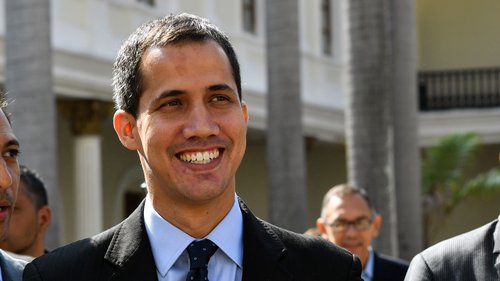LONDON, (Reuters) – Britain has recognised Venezuela’s opposition leader Juan Guaido as the country’s president, the English High Court ruled yesterday, in a case over whether Guaido or Nicolas Maduro should control $1 billion of its gold stored in London.
A four-day hearing last week had been the latest part of a tug-of-war over the gold reserves held in the Bank of England and centered on which of the two rival presidents Britain now views as Venezuela’s legitimate leader.
The British government in early 2019 joined dozens of nations in backing Guaido, head of Venezuela’s opposition-controlled congress, after he declared an interim presidency and denounced Maduro as an usurper.
Guaido, at the time, asked the Bank of England to prevent Maduro’s government from accessing the gold, which the opposition claims Maduro wants to use to pay off his foreign allies. In May, Maduro’s central bank (BCV) sued the Bank of England to recover control, saying it was depriving the BCV of funds needed to finance Venezuela’s coronavirus response.
The Bank of England then asked the court to determine who the British government recognized as Venezuela’s president.
High Court judge Nigel Teare handed down a judgment ruling that Britain had “unequivocally” recognised Guaido as constitutional interim president. Teare based his decision on the so-called “one voice” doctrine, in which the court must accept as conclusive an unequivocal statement by the British government recognizing the leader of a foreign nation.
“The judiciary and the executive must speak with one voice” Teare said. “There cannot be two Presidents of Venezuela.”
Sarosh Zaiwalla, one of the lawyers representing the Maduro camp, said today that the BCV would be seeking leave of the court to appeal the judgment.
The BCV on Twitter called the decision “absurd” for depriving Venezuela “of the gold it urgently needs to confront the pandemic”.
If the BCV’s appeal is granted the accelerated pace of the case means it could go to the London Court of Appeal in the coming weeks. If that appeal were to prove successful it would then go up the Supreme Court.
Guaido, in a statement, said the court’s decision “contributed immensely to the protection of Venezuelans’ resources from the clutches of the corrupt dictatorship.”
Over the past two years, Maduro’s government has removed some 30 tonnes of gold from its reserves in Venezuela to sell abroad for much-needed hard currency.
A member of Guaido’s legal team said they now expect the court to determine whether Guaido has the authority to represent Venezuela’s central bank in another legal case to decide control over the gold itself.





